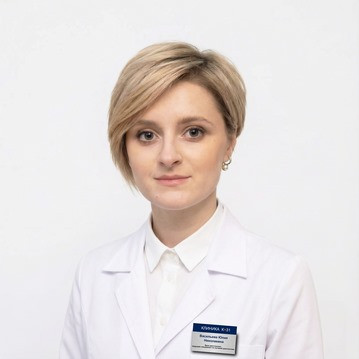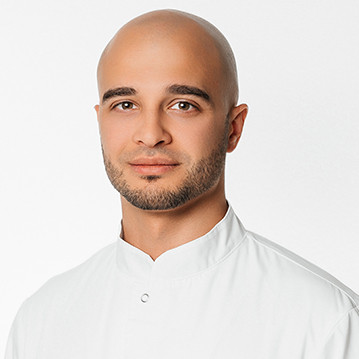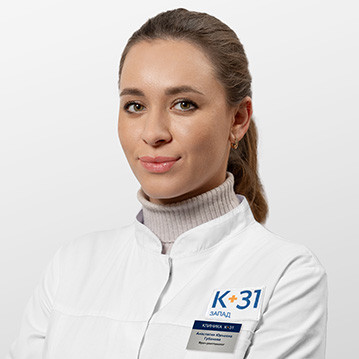Detailed MRI of the prostate allows you to examine its anatomy in detail and detect pathologies at the earliest, asymptomatic stages. This is relevant, first of all, for the early diagnosis of an oncological tumor, which allows you to start treatment in a timely manner and cure the disease without consequences.
The "K+31" Diagnostic Center (Moscow) is equipped with modern high-field MRI scanners for accurate MRI diagnostics of the prostate in men, as well as the abdominal organs, bladder, structures of the spine, head, vessels of the neck and brain, joints, etc. .d.
The essence of the study, types of MRI of the prostate
The prostate is located at the beginning of the urethra, adjacent to the rectum and bladder. This glandular-muscular male organ, the size of a large walnut, performs many important functions in the body: it controls urination, controls the sexual sphere, produces a special secret to maintain sperm viability, which is important for successful conception, and serves as a natural barrier to infectious agents.
When examining the pelvis, the bladder is sure to capture the prostate area, since it is this organ that serves as the "base" for the most dangerous male diseases - prostatitis, adenoma, cancer.
Alternative ways of examining an organ:
- CT, as a rule, is not used in the diagnosis of diseases of the prostate gland, because computed tomography can show the shape, size, surrounding tissues, but does not visualize the nature of structural changes in the gland itself.
- Conventional ultrasound is not very informative in relation to prostate pathologies. Sometimes ultrasound with a transrectal sensor (TRUS) is used, but the study is very uncomfortable for the patient, and is also inferior in terms of information content to MRI.
Only magnetic resonance imaging can maximally clarify the clinical picture, identify diseases at the earliest stages of development.
MRI is performed in two main types:
- Standard, no contrast. Highlights the structures, shape of the gland, can visualize large formations, invasive tumors, inflammation, adenoma.
- With contrast. The technique is most informative in relation to benign, malignant neoplasms.
Complex contrast-enhanced MRI of the prostate is performed in a multiparametric mode, when dynamic contrast is combined with diffusion-weighted studies. This modern method makes it possible to take images with high-contrast sections with a step of 2-3 mm, which reveals tumors of the same extremely small size.
Multiparametric MRI of the prostate gland is prescribed in the case when a malignant tumor is suspected or detected on a rectal examination, TRUS, and it is necessary to identify its exact localization, nature, volume. In many cases, a biopsy is dispensed with, but sometimes an additional biopsy is taken from the affected areas of the prostate under MRI control for further histological examination.
Indications for MR diagnostics
Usually, magnetic resonance imaging is prescribed after detecting an increase in the concentration of specific antigens in the blood, with ambiguous results of other diagnostics, when a volumetric formation is detected during a manual examination of the gland.
MRI for prostatitis, tissue hyperplasia is not performed if the antigen level in the blood is not elevated.
Clinical indications for MRI:
- Dysuric phenomena, the need to push to excrete portions of urine, intermittent or sluggish stream, nocturnal discharge of small portions of urine. Examination is necessary if these symptoms are noted against the background of unexplained weight loss, weakness, sexual dysfunction, sweating, hot flashes and fever in the evening.
- Defecation disorders - constipation, sensation of incomplete emptying of the rectum, foreign body, blood, stools in small portions or a tape.
- Pain in the lower abdomen, rectum, urethra, blood and / or pus in the urine, semen.
- Pain after intercourse or urination.
- Incomplete emptying of the bladder.
A control study is also prescribed to assess the state of the sphincter, nerve bundles, blood vessels after operations in this area - for example, after removal of the prostate.
Sometimes preliminary diagnostics is necessary before surgery to clarify the condition of the organ, the location and size of the tumor, and the nature of the tissue defect.
Absolute and relative contraindications
The state of malaise, after an injury, exacerbation of chronic diseases, severe somatic, systemic pathologies of the kidneys, heart, liver are direct contraindications for diagnostics. After stopping the acute period, MRI can be performed, according to the decision of the attending physician.
Who else should not undergo a diagnostic procedure?
- Having any implanted electronic devices, prostheses - for example, to pacemaker, insulin pump, endoprostheses.
- Persons with metal parts in the body - dentures (except for dental pins), braces, vascular clips, knitting needles, plates, Ilizarov apparatus, bullet, metal shavings, fragments. MRI with a titanium plate is not prohibited, it is a paramagnetic alloy that is not exposed to the radiomagnetic waves of the device. But in any case, it is necessary to warn the doctor about the presence of titanium structures in the body before the diagnosis.
- With pathologies of the spine and other organs that do not allow lying on your back.
- With claustrophobia, psycho-emotional instability, some mental illnesses, hyperkinesis.
- To everyone who has tattoos with ferromagnetic inks on their bodies.
If the diagnosis is performed on a closed circuit device, then the patient's weight is more than 120 kg.
If it is necessary to perform an MRI of the prostate with contrast, the following contraindications are carefully considered:
- Severe renal or multiple organ failure that will prevent the removal of the contrast agent from the body. In compensated kidney failure, a diagnosis can be made, followed by dialysis to help the kidneys clear the foreign substance.
- Individual intolerance to the components of the contrast agent. With frequent allergic reactions in history, preliminary tests for the allergen can be done.
When performing MR diagnostics and a biopsy at the same time, diagnostics are performed first. After operations in this area, the study should be scheduled no earlier than 2-3 weeks later, so that the surgical wound heals, the hemorrhages resolve.
Prostate MRI shows
The results will be presented in the form of layered images of this area, on which you can see the MRI anatomy of the prostate: structure, shape, size, relationship to neighboring tissues and organs.
Pathologies that diagnostics reveals:
- Prostatitis of any etiology. An MRI of prostatitis can be performed with or without contrast.
- Birth defects of organs, including the prostate.
- Tissue scars, areas of atrophy, dystrophic changes in the gland.
- Inflammation, infiltrate, abscess, gland cyst, seminal vesicles.
- Benign and malignant tumors, metastases.
- Ductal ischemia, areas of necrosis.
- Invasive tumors from other organs to the gland.
- Prostate adenoma.
- Complications after operations in the pelvic area, perineum.


























